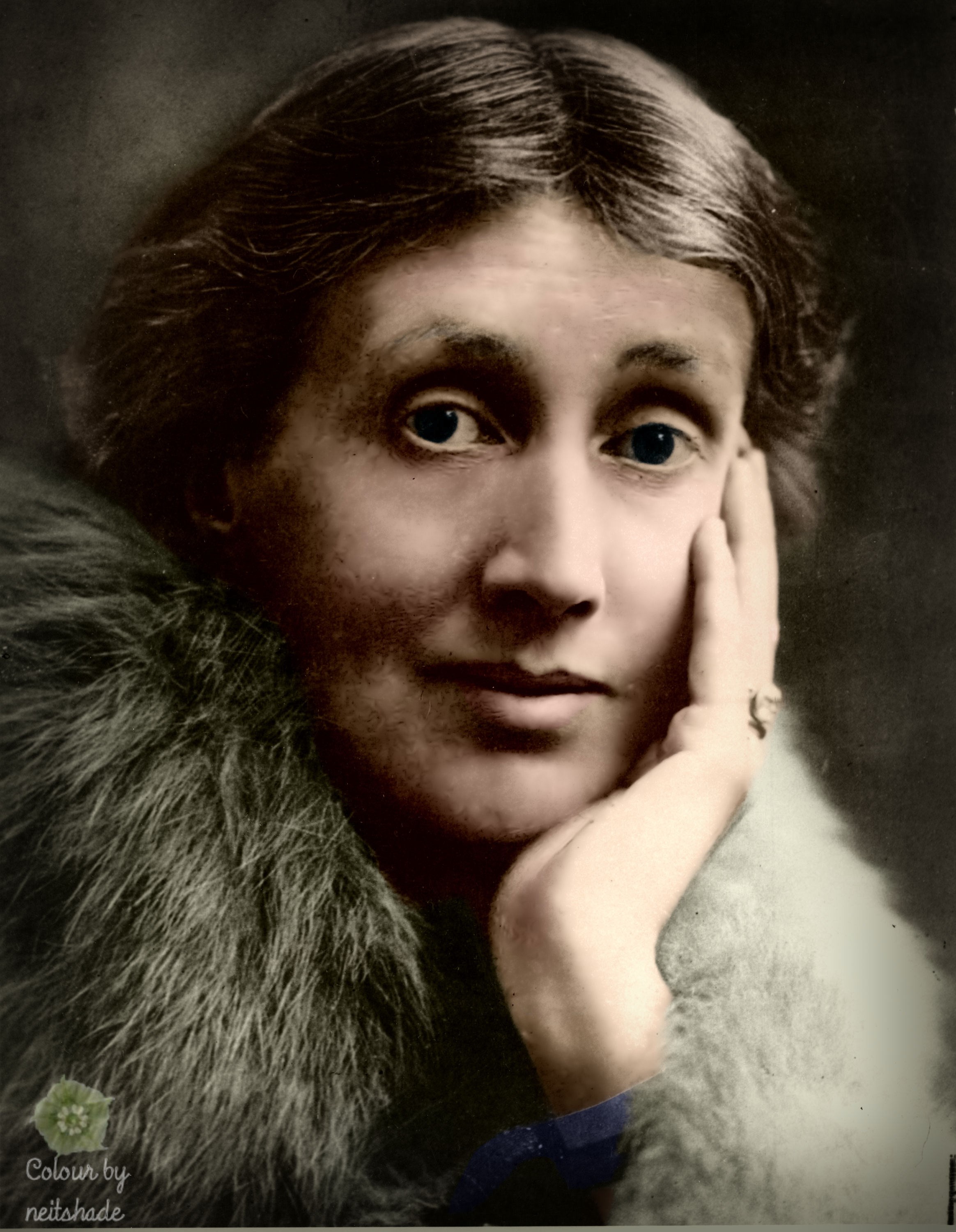I must admit, I was afraid of Virginia Woolf. I’m a little wary of modernism in general, partly from lack of exposure but mainly because the exposure I’ve had was off-putting. While there is a lot of experimenting in modernist texts, it feels to me that it comes from either deep ideological reasons I don’t feel or a sense of showing off. I’m happy with a confusing, experimental text like Tristram Shandy because it seems to come from a joy of playing. I never got much sense of joy from modernist stuff.
Then I read Ulysses. True, I didn’t follow all of it and I really disliked any time hanging with Stephen Dedalus but I love Leopold Bloom and began to see a very traditional novel buried in all the argy-bargy. When I read Middlemarch shortly afterwards, it seemed the more experimental novel in the way it positively encouraged the reader not to engage with the characters.
Having tackled that big beast, I was still nervous of Virginia Woolf’s shorter works. The little I knew of her life, with multiple suicide attempts that culminated in a successful one implied that they were going to be truly joyless pieces. What’s more, I’d heard she was significantly more intellectual and controlled than Joyce, denser and harder to follow. I had these images of impenetrable blocks of miserable text, cold and aloof. I found I was very wrong.
I took the plunge with To the Lighthouse and found myself enjoying it so much I quickly read The Waves and Mrs Dalloway with only a book in between them. As it stands, I’ve read all the Woolf in my own collection and may have to seek out more. Rather than cold and impersonal, I found these books to be rich in character, in specific, telling detail and full of humanity. I even found a few good jokes.
At first, I found reading To the Lighthouse a little like swimming through it, things can be a little murky and it does feel that we are too close to the characters and things around them, there isn’t the clear ‘top-down’ approach of other novels and it takes a little getting used to. That said, I didn’t get lost in the book. What I had anticipated as vague musings were actually very concrete feelings and thoughts that were directly relevant to the characters and the things they held dear or feared. This meant that those musings built up character but also that it was very easy to tell which character you were lingering in at that moment. The same was true of The Waves, which was very careful to orientate you in which character you were spending time with, and the characters were so clearly drawn that it would have been possible without this care. Mrs Dalloway was a breeze.
While I feel her technique is not a very accurate rendering of a momentary stream-of-consciousness, her way of reporting the characters shifting thoughts seemed to accurately convey how we think about thinking. The experience of life as Virginia Woolf paints it, is that we flick between all these different selves and it’s only to other people that we have consistent selves. There’s a lot about how people fail to connect, how little of those around them they actually see, even those they love. Yet, these works show moments of connection and communication - they are are imperfect but possible and worth so much for that. Though I do find her characters tend to worry about the lack of connection far more than most people do, they also think far too much about death (and a number of characters long for it.. and find it).
My biggest surprise was how much I loved her characters. Whether it was Bernard in The Waves, who feels his best self is when he’s mixed with others, a true extrovert; or whether it was Mrs Ramsay in To the Lighthouse, keeping her world together through almost imperceptible moments of empathy and connection. I felt for Mrs Dalloway, analysing her past and the possible missed opportunities or poor Rezia, watching her lover disappear in front of her. Where I was expecting novels of ideas, and to a degree found them, I was not expecting novels filled with realistic people.
As for jokes, I’m sure To the Lighthouse starts with one, The first two sentences are short ones where Mrs Ramsay declares that the next day’s trip to the lighthouse shall go ahead. We then have a page long sentence of her son James delighting in that news, how his happiness colours all the objects around him and how strong his emotions flow in him. The next is a very short sentence of his Mr Ramsay saying the weather won’t be good enough to go. It’s a short puncture to the long sentence and a comic reverse. There’s also the part in Mrs Dalloway where all the characters watch a royal car moving its way up The Mall, filled with patriotic sentiment before being distracted by a skywriter advertising toffee - it’s not a knee-slapper, but I thought a good comic moment.
I found a depth and richness to these books that I haven’t found many other places, a real summation of life, a real evocation of those private moments in private mythology. They really capture a sense of being, a sense of friendship and the eternal struggle to make life count. I’m surprised to say it, but I found Virginia Woolf a life-affirming experience.



No comments:
Post a Comment